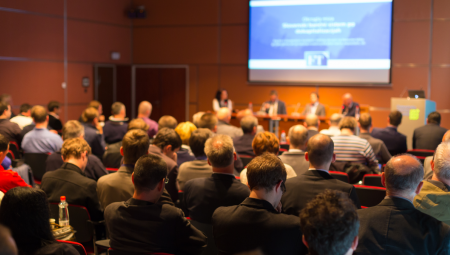Brazil. Mechanical engineers working in the refrigeration, air conditioning, ventilation and heating industry are concerned about the role of "leigos" (people who do not have in-depth knowledge of a subject) in the market.
Mechanical engineers working in the refrigeration, air conditioning, ventilation and heating industry are concerned about the role of "leigos" (people who do not have in-depth knowledge of a subject) in the market.
In a meeting with the president of Confea (Federal Council of Engineering and Agronomy), civil engineer José Tadeu da Silva, representatives of the Brazilian Association of Refrigeration, Conditional Air, Ventilation and Heating (Abrava), along with other partner organizations requested support from Confea in solving the problem. On that occasion, José Tadeu highlighted the recent adoption of Resolution No. 1,073 / 2016, which by regulating the allocation of bonds, activities, competencies and fields of action of the professionals of the Confea / Crea System, will help Abrava's application.
During the presentation, the vice president of the Association, Arnaldo Basile, said that it is estimated that around 300,000 professionals in the heating and cooling sector will participate, and that there are no more than 200 project offices in the area in Brazil. "In a tropical country, air conditioning is not luxury, but the quality of life and productivity are," he said when he explained that every year the industry grows two to three times the rate of GDP growth.
In the exhibition, the representatives made a comparative analysis between the curricula of the mechanical engineering and architecture courses, from which it is concluded that there is a need for working professionals to have a first class training. "That's the reason for our meeting," Basile said, "reversing the process of professional assignments for the design, design and installation of air conditioning systems for the mechanical engineer." They were concerned about Law No. 12.378/2010, which created the Council of Architecture and Urbanism (CAU).
In addition to suggesting that representatives be interested in the new resolution, the President of Confea mentions the existence of the Thematic Committee on Interconselhos Harmonization, whose composition includes two mechanical engineers among the five members: the federal advisor Paulo Viana, and the president of Crea-BA, Marco Amigo. "I'm going to put this topic in the group. When they indicate the inclusion of the issue in the agenda, we will request the participation of an expert that you indicate," said José Tadeu. Another route suggested by the President of Confea was to address the issue with the four federal representative councilors of mechanical engineers in the plenary, and to suggest the creation of a specific working group on the subject.
Source: Abrava.














